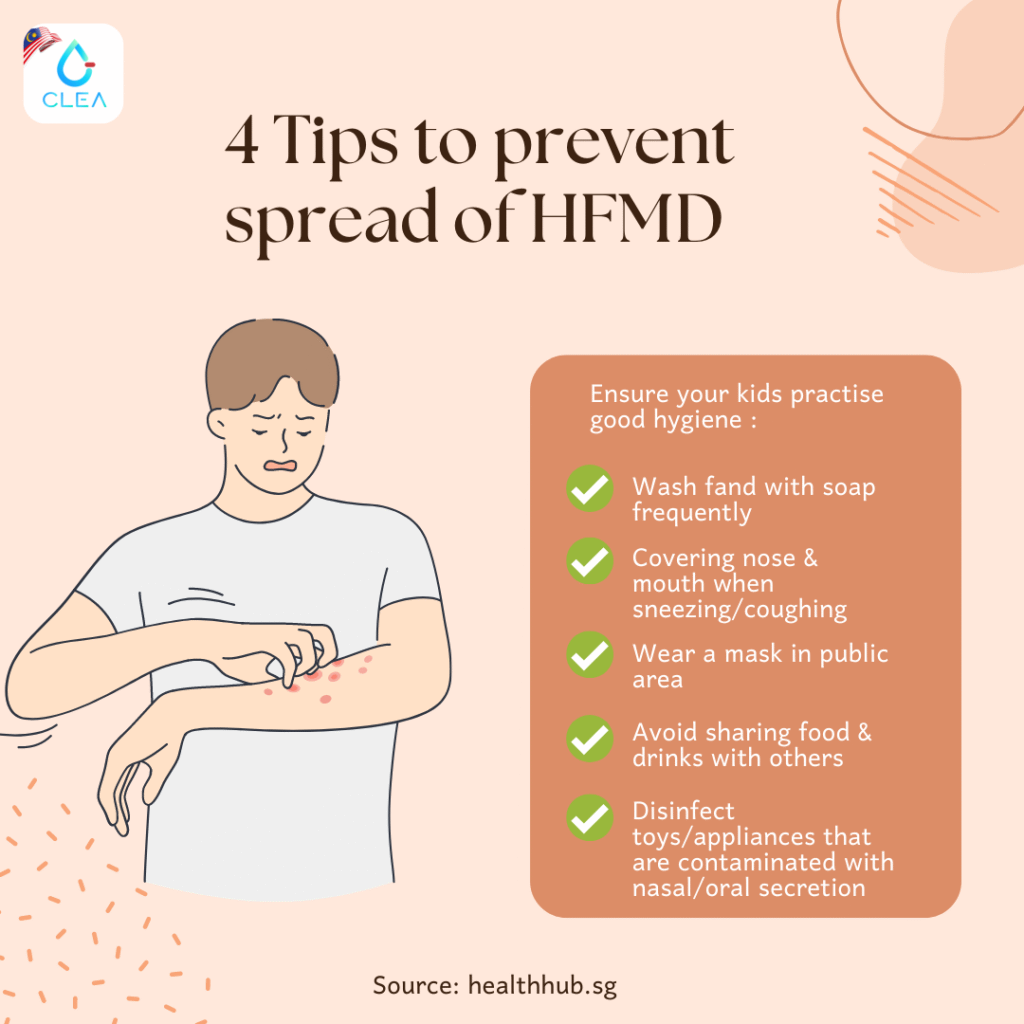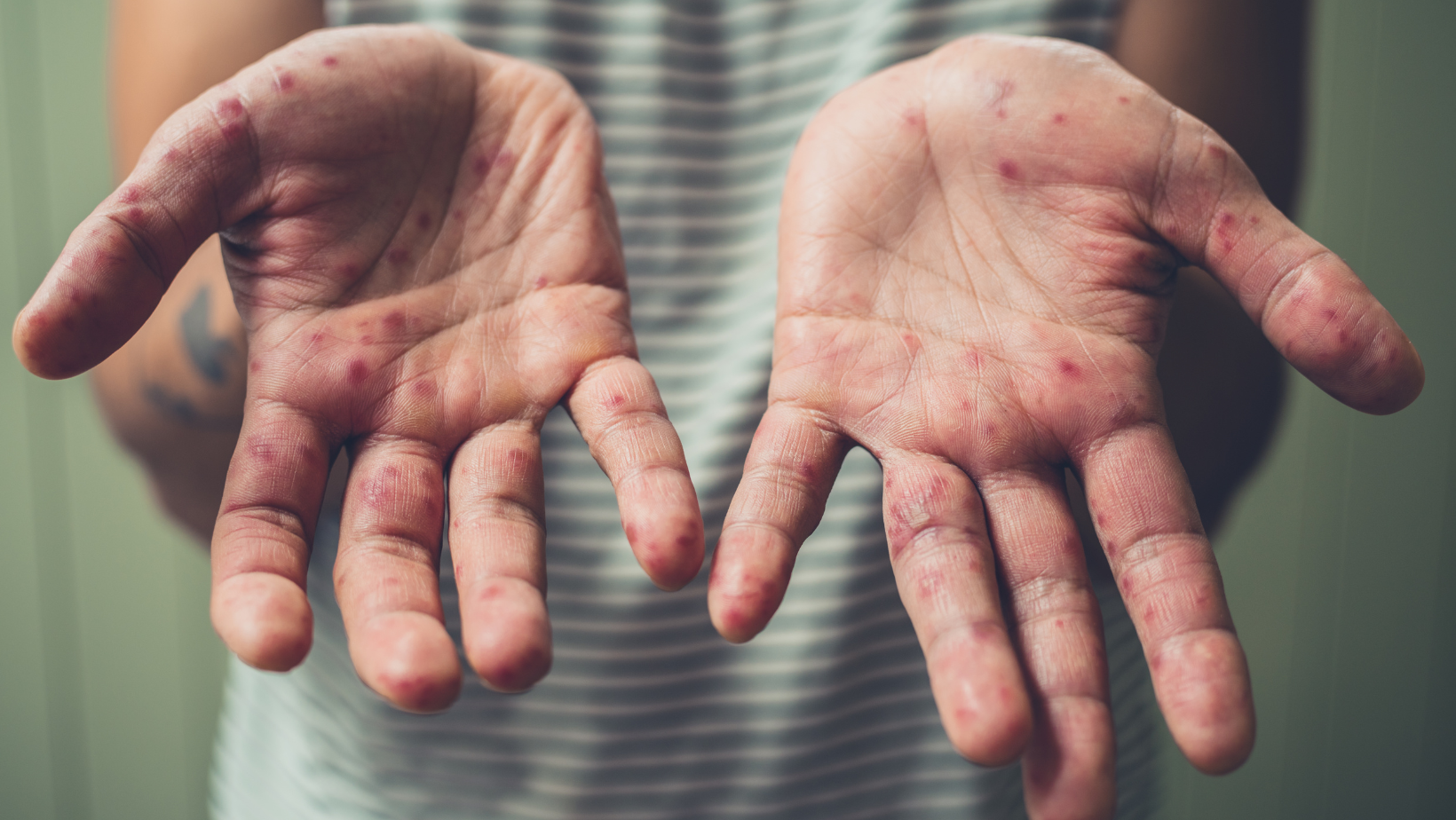What is HFMD?
As the cases of HFMD have risen, many of us have started to ask, what is HFMD. HFMD is a short form of hand, foot, and mouth disease. It usually affects infants and children that are younger than 5 years old. Most children have mild symptoms for 7 to 10 days.
Does HFMD Affect Adults?
YES, it will. Both adults and children can be affected, however young children under the age of five are especially vulnerable.
How does HFMD spread?

HFMD virus can spread from one person to another through tiny, air droplets that are released when the infected person sneezes, coughs, or blows their nose. You can catch hand-foot-mouth disease if:
- An infected person sneezes, coughs, or blows their nose near you.
- Touching your nose, eyes, or mouth after you have touched something contaminated by the virus, such as a toys or doorknobs.
- Touching stools or fluid from the blisters of an infected person.
During the first week a person is infected with HFMD, it is the easiest to spread the virus. (Medlineplus.gov)
Symptoms of HFMD

Symptoms may include:
- Fever
- Sore throat
- Ulcers in the throat, mouth and tongue.
- Headache.
- Rash with vesicles (small blisters 3–7 mm) on hands, feet and diaper area. The vesicles are typically on the palm side of the hands, the sole side of the feet and are very characteristic in appearance. The rash may also be present on the buttocks, arms and legs.
- Poor appetite.
- Lethargy (Source : healthhub.sg)
What to do if your kids show symptoms of HFMD ?
- Keep your child at home, away from school, kindergarten or childcare centre.
- Keep your child away from public places.
- Check out for signs and symptoms in other family members, both children and adults
- Ensure child’s toys, books, eating utensils, towels and clothes are separated from others.
- Inform the school, kindergarten, childcare centre or enrichment classes as soon as possible so that they can monitor other children closely and take additional precaution steps to minimise the spread of HFMD.
- Ensure all the blisters have dried up and has recovered fully, after the expiry of the medical certificate (MC) given by the family doctor before letting your child go out. (Source : healthhub.sg)
- Contact your doctor if your child is having difficulties drinking fluids due to the mouth and throat sores or if the symptoms worsen after a few days. (mayoclinic.org)
How to prevent HFMD?

To prevent HFMD, you have to ensure your children practices good hygiene, for instance,
- Wash hands with soap frequently.
- Covering mouth and nose with a piece of tissue when coughing or sneezing
- Always wear your face mask in the public area
- Avoid sharing foods, drinks with others
- Disinfect toys or appliances that are contaminated by nasal or oral secretions using them again (Source: healthhub.sg)
Treatment for HFMD
Unfortunately, there is no treatment for this disease. Most people with HFMD gets better on their own within 7 to 10 days. There is no specific medical treatment HFMD. Drinking more water and having a good rest is the steps to relieve from symptoms and prevent dehydration while you or your child are sick. (Source: CDC.gov) Changing to a soft diet (e.g. porridge, pureed fruit) if the mouth ulcers is an issue. (Source : healthhub.sg)
Advice to parents of child that has been affected by this disease
- Calm down and don’t panic
- Consult and follow the instruction of doctor
- Make sure your child drinks enough water and gets enough rest
Useful Link : https://cleadoc.com
Reference:
https://www.cdc.gov/hand-foot-mouth/about/treatment.html
https://medlineplus.gov/ency/article/000965.htm
https://www.healthhub.sg/live-healthy/631/HFMD


